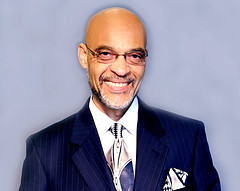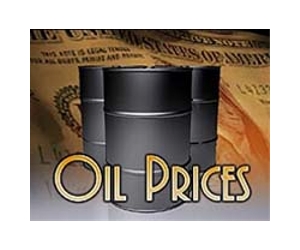Earl Ofari Hutchinson's take on the politics of the day
The Hutchinson Report
 on
on
American Urban Radio Network
Radio One
Al Sharpton Show
Monday 10:00-11:00 AM PST 2:00 to 3:00 EST
Streamed on http://tunein.com/radio/WURD-900-s23419
KPFK Radio Los Angeles 90.7 FM
Saturdays Noon to 1:00 PM PST
Streamed on http://www.kpfk.org/programs/181-hutchinson-report.html
http://twitter.com/earlhutchinson
In an exclusive interview on The Hutchinson Report Newsmaker Hour with host Earl Ofari Hutchinson on KTYM 1460 AM Los Angeles on April 29, Phil Flynn, Vice President, Energy Analyst and General Market Analyst with P.F.G. BEST
Transcription by Annette Lockett, McAl Typing Service 323-293-3244 * FAX 323-293-0404 * E-Mail [email protected]
EOH: Is there manipulation on the part of speculators in the oil futures market that drives up gas and oil prices?
PF: Absolutely not. To me it is a side show to take the focus off what could be described as a bad energy policy. Speculators are an easy target because at times they make a lot of money and people don’t really understand what speculators do and the value they bring to the global economy.
EOH: How do oil futures work?
PF: It’s like a big insurance company. The buyers and sellers of oil have to deal with a lot of events that make prices go up and down. It’s difficult to deal with day to day business if you have to worry about fluctuations in energy prices. What the futures market does is provide an area where both the buyers and sellers of oil can lock in a price so they don’t have to worry about price fluctuations and can focus on what they do best. Speculators assumes the risk. If something bad happens in the Middle East and the price of oil goes through the roof, the speculators stand to lose a lot of money. On the other hand, if the speculators are betting on the up side, they stand to make a lot of money. Ultimately, what the speculators do is assume risk for the global economy so the world can do business. At the height of the economic crisis when everything was falling apart, even the speculators were so nervous about the economic breakdown that they did not assume the risk and that was a major jolt to the economy. On a day to day basis, the risks they take keeps the economy moving along.
EOH: What kind of real power does commodity future trading have?
PF: They have a lot of power; they have the power to regulate for good and they have power to do a lot of damage. I think within the Commodity Trading Commission today there is a vigorous debate about this very issue, whether speculators are driving the price of futures or are being driven because of the fundamentals in the market. If you look at the economic crisis, the futures market has nothing to do any of it, and in fact, probably would soften the blow of the global economic crisis. I think too many times people don’t understand the fundamentals of the futures market and immediately say the price has gone up because of speculation. In 2008 the price of oil made a drastic move from under $100 to over $147 a barrel in a couple of months. People were looking at the market saying that obviously it has to be those evil speculators driving up the price. We know now they were running from the greatest economic melt-down since the great depression.
John Kerry, running against President Bush in 2004, made a pronouncement on energy. Senator Kerry believed that speculation was driving the cost of oil ridiculously high to $35 a barrel. The truth of the matter is that if you look back, it wasn’t the speculators; it was the biggest oil growth of all times. It was an industrial revolution in China and India unlike anything that has been seen since the U.S. industrial revolution. Now everybody is aware of the impact China has had on the global economy. Sometimes the markets know better than politicians or traders, and instead of trying to kill the messenger, we should listen to what the messenger is trying to tell us.
EOH: Your thoughts about alternative and exploration markets, offshore drilling, and tax breaks for the oil industry.
PF: I believe the Obama administration has some good ideas for the long haul. It’s nice to embrace wind and solar and bring jobs, but the reality is, all of those energy sources are not going to become a reality for 10 to 25 years. In the short term, we need to produce more oil in this country. There is no doubt that President Obama has spent an inordinate amount of money favoring “Big Green” at the expense of the oil companies. Since the BP oil spill and the drilling moratorium, many people feel the administration went too far and have been dragging their feet on permits all over the country. Oil production in the Gulf of Mexico has fallen by over 15%; if it were in production, it would be about one third of the oil lost from Libya during this conflict. That extra cushion could have made a difference between gas prices staying at $3.80 a gallon or rising to over $4.00. The tax breaks on oil companies to me is very disingenuous. I think the government uses the oil industry as a personal piggy bank. Exon Mobile profitability is up 69%, and they paid more in taxes than they made in the U.S. What you are seeing here by the administration is they are outsourcing their energy security to other countries.
EOH: Your thoughts on the perception that we are paying more for gas because of the exportation of gas and petroleum products to foreign countries?
PF: If you look at the big oil companies, they generally don’t make a lot of money selling gas. They make most of their money on exploration and production. Most of the big companies want to get out of the gas business. For the big oil companies, gas is a burden for them. They would be more than happy to sell it to the middle man. I would think we should happy that this country is importing something, because the bottom line is our trade deficit is huge. To improve the economy we need to export more. We are seeing the demand for energy in these emerging markets start to take off, more demand for gas in these other countries than we have seen in the United States.
Comment
© 2014 Created by Enhager Media.


You need to be a member of The Hutchinson Report News to add comments!
Join The Hutchinson Report News